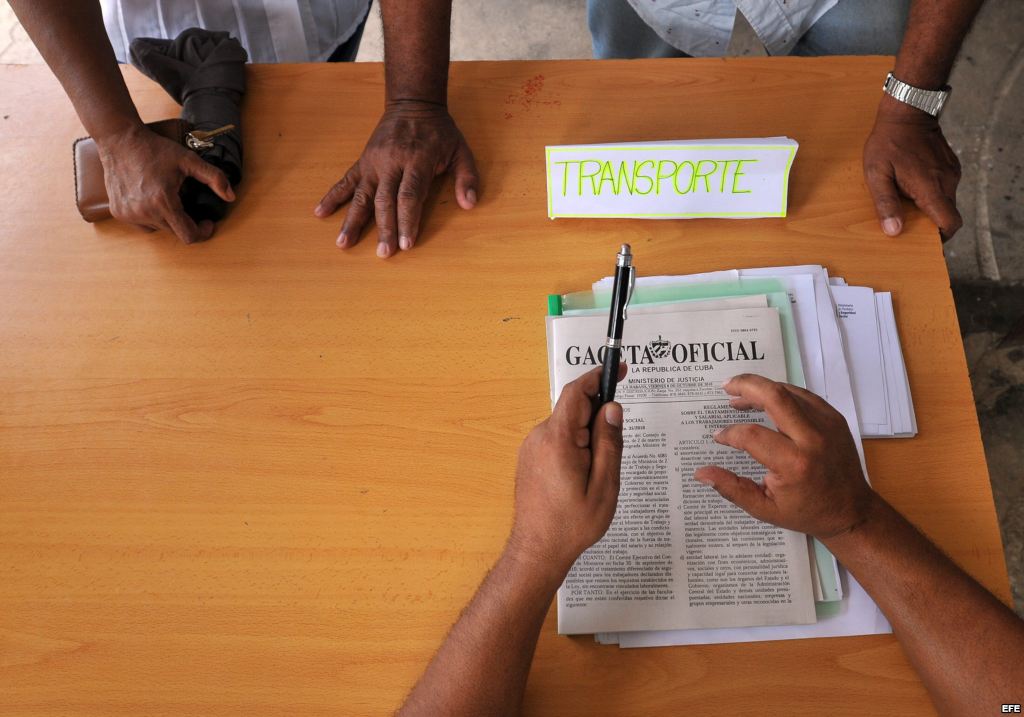
Angel and his son Eduardo Angel Santiesteban, whom they tried to pressure to implicate his father.
By Amir Valle
Part Two
II. The Judicial Web of Outrage
False Evidence
On July 29, 2009, Angel Santiesteban was detained, accused of having raped his ex-wife, Kenie Rodriguez, from whom he’d been separated for 4 years and who lives with an employee of the Ministry of the Interior. It’s been shown that Angel was not there and she refused the medical tests necessary to validate her claim.
A new claim by the ex-wife, Kenia Rodriguez: she accused his this time of stealing the family jewels. But she refused to point out the jewels in photos and the claim had no effect.
Another new claim by the ex-wife, Kenia Rodriguez: this time for stealing money of various denominations. Angel Santiesteban showed that he still had not been in the place of these events. She offered no proof and the claim was dismissed.
A month later Angel Santeiesteban is in a nearby place (60 yards) where he runs into his ex-wife Kenia Rodriguez; he is accused of harassment, but this time the claim is not accepted.
Fifteen days later, there is a short-circuit in an electrical system in disrepair about which her neighbors had warned Kenya Rodriguez’s, causing a fire in the house at a time when she was not inside. However, she filed a complaint against Angel Santiesteban for attempted murder. Angel freely proved that he was not there, but the next day they summoned him and imposed a fine of 1500 pesos. They told him that he could not travel in the coming days to the Festival of the Word, in San Juan, Puerto Rico, to which had been invited.
Days late they assigned a new police investigator, who reactivated and placed in a new file all of the false charges, previously discarded. The established sentences for the alleged crimes totaled 54 years.
Judicial Irregularities
They present a single witness, who during the confrontation starts screaming at them not to force him to testify against Ángel Santiesteban. Leaving the police confrontation, the witness visits Angel’s house and explains in front of neighbors that he was forced to testify against him. His words are recorded on a video. On learning that Ángel Santiesteban`s defense had the recording of the false “witness”, they removed him from the case.
The case file does not appear in any of the places where it should be, according to the law. Finally, they acknowledged that it had been sent to an official named Ribiero, in Villa Marista, the central prison of State Security (Cuba`s political police).
Between September and October 2011, the defense attorney claims that he was pressured and harassed for defending Angel. Angel is forced to hire a new lawyer: Miguel Medina Iturria, who can prove the falsity of the most serious charges, so the charges are removed from the indictment. The Prosecutor now requests 15 years instead of the previous 54.
After three years of waiting, in October 2012, the trail is held. The defense attorney shows the inconsistency of the few pieces of evidence presented, including the report of a Calligraphic Expert Perito that Angel’s guilt is based on the fact that he writes with “some” slant, and makes the letters “very suspicious in size.” Nevertheless, Angel Santiesteban is condemned to five years in prison when, as also demonstrated by the defense, if the crime had been proved a fine as punishment enough, according to current legislation, giving weight “to the social and citizen merits of the defendant`s behavior.”
III. – Embarrassing evidence of the Infamy
Since the beginning of the dirty campaign to make the Cuban writer Angel Santiesteban Prats into a criminal, numerous sites on the internet have said that the trial for alleged common crimes against this recognized figure from Cuban letters was an unfair trial, rigged and full of irregularities, and is an attempt to throw a cloak of silence about the true reason for the retaliation of the Cuban political police: the strong criticism against Raul Castro`s regime and totalitarianism published by Angel in the blog “The Children Nobody Wanted.“
We have enumerated here the most scandalous violations, among many others, demonstrated by the defense attorney, Miguel Iturria Medina, during the trail and in the appeal against the verdict of the Havana Provincial People`s Criminal Court.
1 – After the police dismissed for months, as unfounded, the accusations presented against Angel Santiesteban by his ex-wife Kenia Rodriguez, a new investigator was assigned who revived all these false accusations and opened a new file with them.
2 – The accusation presented a false witness: Alex Quintana Quindelan, who later, in a confession recorded by the defense (you can see it on Youtube), demonstrated the falsity of the crimes Angel Santiesteban was accused of and that Angel Santiesteban`s accuser lied under the direction of Kenia Rodriguez, who promised to repay him with personal goods.
3 – The file, which according the Law should remain exclusively in offices of the police and judicial authorities, was lost for months and was rescued by the defense from the hands of the political police at Villa Marista, an institution of State Security.
4. – The incriminating evidence of the alleged rape and aggressions that Ángel Santiesteban perpetrated against his former wife were shown to be lies during the trial with numerous medical and legal evidence, demonstrating Kenia Rodríguez’s strong interest in damaging at any cost the moral and social integrity of Angel.
5. – The evidence of the accusation of the supposed aggressive attitude of Ángel Santiesteban against his former wife psychologically affected their son: Ángel Santiesteban Eduardo Rodríguez, whose testimony was disproved by the child’s teacher, Yahima Lahera Chamizo, who told the defense attorney that the boy had confessed to being pressured by mother to testify against his father, and even the child’s own later statements. Neither of these statements was taken into account by the Court.
5. – During the arrest of Ángel Santiesteban, in November 2012, for accompanying other opponents to a police station in Havana, demanding the release of an opposition a lawyer detained without charges, “Camilo,” an agent of the political police, after making death threats with a gun, said, “is the five years in prison, we are going to give you not enough?” What is “odd” about this statement is that it was made the day before the Court of Justice delivered its judgment.
6. – The five-year sentence applied in this case is excessive and does not correspond to the provisions of law for the offense for which he is convicted: “of three months to one year in prison or a fine of one hundred to three hundred shares*.” In this sense, the defense argues that it has also violated the provisions of the Governing Council of the People’s Supreme Court in its Instruction No. 175 dated July 21, 2004, which guides the courts when possible penalties do not exceed five years’ imprisonment, assessing the substitution of such penalty by other measures established by law, preferably those that do not involve incarceration.
Finally, as has been said on many websites where this injustice is denounced, it involved violations sufficient to invalidate the entire process against Ángel Santiesteban Prats.
*Translator’s note: With regards to fines, “shares” are established in Cuban law, the value of which may change with time. Thus, the law itself does not need to be changed in response to changing values of money, so a “share” could be any amount.
6 March 2013
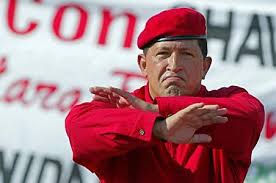 he early death of Hugo Rafael Chávez Frías, president of the Republic of Venezuela, brings with it instability for the country and those allied with him.
he early death of Hugo Rafael Chávez Frías, president of the Republic of Venezuela, brings with it instability for the country and those allied with him.
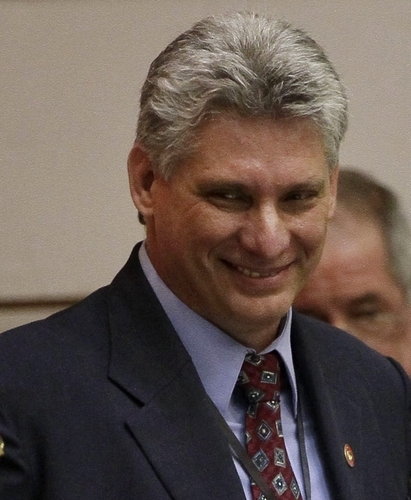
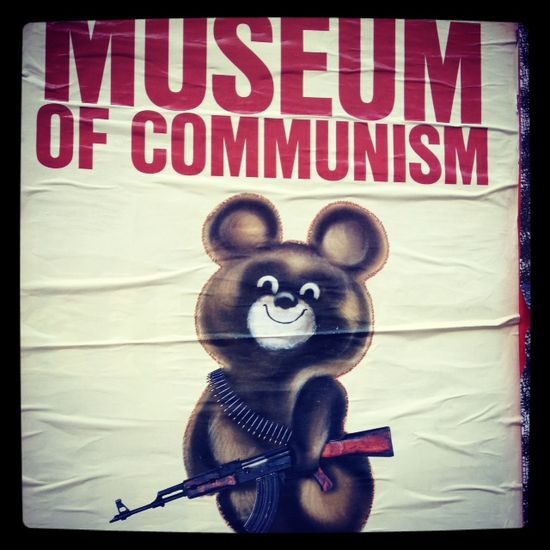










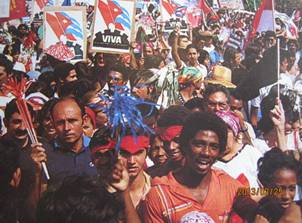
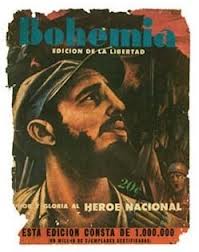

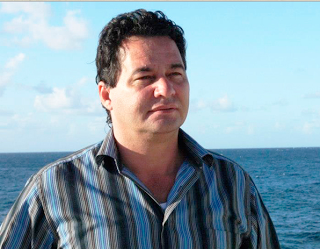
 Five years ago expectations were high with regards to the selection of the new government elite. Many people speculated about who would be the next first vice president. Bets focused on two candidates: Carlos Lage Davila and Jose Ramon Ventura. Whoever was chosen, observers theorized, would suggest Raul Castro’s orientation over the next five years. Speculations centered on two conflicting approaches: Raulista, or reformist; and Fidelista, or conservative. Apparently, one of them would mark the pace and type of reforms.
Five years ago expectations were high with regards to the selection of the new government elite. Many people speculated about who would be the next first vice president. Bets focused on two candidates: Carlos Lage Davila and Jose Ramon Ventura. Whoever was chosen, observers theorized, would suggest Raul Castro’s orientation over the next five years. Speculations centered on two conflicting approaches: Raulista, or reformist; and Fidelista, or conservative. Apparently, one of them would mark the pace and type of reforms.